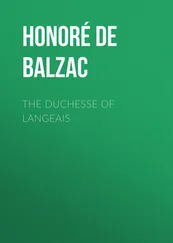Dino Dorothée - Memoirs of the Duchesse de Dino (Afterwards Duchesse de Talleyrand et de Sagan), 1836-1840
Здесь есть возможность читать онлайн «Dino Dorothée - Memoirs of the Duchesse de Dino (Afterwards Duchesse de Talleyrand et de Sagan), 1836-1840» — ознакомительный отрывок электронной книги совершенно бесплатно, а после прочтения отрывка купить полную версию. В некоторых случаях можно слушать аудио, скачать через торрент в формате fb2 и присутствует краткое содержание. Жанр: foreign_antique, foreign_prose, на английском языке. Описание произведения, (предисловие) а так же отзывы посетителей доступны на портале библиотеки ЛибКат.
- Название:Memoirs of the Duchesse de Dino (Afterwards Duchesse de Talleyrand et de Sagan), 1836-1840
- Автор:
- Жанр:
- Год:неизвестен
- ISBN:нет данных
- Рейтинг книги:4 / 5. Голосов: 1
-
Избранное:Добавить в избранное
- Отзывы:
-
Ваша оценка:
- 80
- 1
- 2
- 3
- 4
- 5
Memoirs of the Duchesse de Dino (Afterwards Duchesse de Talleyrand et de Sagan), 1836-1840: краткое содержание, описание и аннотация
Предлагаем к чтению аннотацию, описание, краткое содержание или предисловие (зависит от того, что написал сам автор книги «Memoirs of the Duchesse de Dino (Afterwards Duchesse de Talleyrand et de Sagan), 1836-1840»). Если вы не нашли необходимую информацию о книге — напишите в комментариях, мы постараемся отыскать её.
Memoirs of the Duchesse de Dino (Afterwards Duchesse de Talleyrand et de Sagan), 1836-1840 — читать онлайн ознакомительный отрывок
Ниже представлен текст книги, разбитый по страницам. Система сохранения места последней прочитанной страницы, позволяет с удобством читать онлайн бесплатно книгу «Memoirs of the Duchesse de Dino (Afterwards Duchesse de Talleyrand et de Sagan), 1836-1840», без необходимости каждый раз заново искать на чём Вы остановились. Поставьте закладку, и сможете в любой момент перейти на страницу, на которой закончили чтение.
Интервал:
Закладка:
Thence we went on to the new Church of Our Lady of Loretto. It seemed to me extremely heavy and full of motley ornaments, and had it not been for some fine pictures I should have found little agreeable to look at. It is said to be in the style of the Italian churches, which I do not know; but to judge from this specimen I would rather say my prayers under the lofty, bold, and austere vaults, the hewn stone and Gothic arches of Notre-Dame and of Saint-Etienne du Mont, than amid the glaring colours of this Southern imitation. We finished our wanderings by a visit to the Church of the Madeleine. The interior at present is in exact correspondence with the outside, and it seems that Calchas is about to sacrifice Iphigenia upon it, to such an extent have mythological subjects apparently pervaded this fine building. They are already beginning to gild the arches and the capitals of the columns, pretending that the white stone, though it is much enriched by different kinds of marbling, is too cold to the eye. Thus they are preparing a disagreeable contrast between the outside and the inside. I cannot understand the vagaries of Christian worship.
In the evening at Madame de Lieven's house I saw Berryer, who does not yield to M. Royer in his admiration for M. Thiers' speech. I heard that M. Martin du Nord had given way upon the question of his subscription for printing Guizot's speech, as upon other points. For one who calls himself a member of the Opposition, he does not seem to oppose very strenuously.
Paris, May 11, 1837. – Yesterday I had a call from the excellent Abbé Dupanloup. We were mutually anxious to meet, in the interests of Pauline, before the general departure for the country. As usual, I was touched and pleased by his kind and spiritual conversation. We talked of our hope that the amnesty will inspire the Government with courage to reopen the Church of Saint-Germain-l'Auxerrois, the closing of which is the greatest scandal of the July revolution; seeing that acts of mercy extend from Ham to the Republic and to la Vendée, continued vindictiveness towards the church and to leave the Cross broken would seem to me most inconsistent. The church should be reopened without considering any difficulties that the Archbishop may raise. He should thus be forced to appoint a reliable priest, and then to go and express his thanks to the Tuileries, but he should set to work at once while the effect of the amnesty remains all-powerful; at such a moment there is no fear of any movement in the district, and this action would only be the strongest answer to the Doctrinaires, whose tactics are to represent the amnesty as the price of the compact made with the Left. To reopen the Church of Saint-Germain-l'Auxerrois would restore the balance. I think it would be a politic move as well as a religious restoration; if we delay too long the religious newspapers and people will begin to cry out, with reason, against the injustice of it, and any later action will seem like a concession to their complaints; then the Opposition will pounce upon it and foment irritation with the measure. Everything, therefore, should be quite spontaneous, the religious restoration no less than the royal mercy. I think they will take the matter in hand; it should have been done already, in my opinion.
Paris, May 14, 1837. – The Moniteur of yesterday, heaven be praised, contains an ordinance by which the Church of Saint-Germain-l'Auxerrois is to be restored for worship. I am delighted. The Baron de Montmorency, who came to see me in the morning, had dined yesterday at the Château, where the Queen wept with joy at the news.
In the evening I went to pay a farewell visit at the Hôtel de Broglie, where the amnesty was very unfavourably received, as Madame de Broglie is very anxious to fortify Princess Helena in her Protestantism.
I then went on to the Duchesse de Montmorency, where I heard very bad news of the Prince de Laval. He had caught a slight cold and had taken no care of himself, but had gone to the races at Chantilly in very bitter weather. His malady grew worse, and now causes great anxiety. I should be grieved indeed if any misfortune happened to him, for in spite of his absurdities and foolishness he has a good heart and is a good friend.
I finished the evening with Madame de Castellane. M. Molé came in and told us that the Archbishop, accompanied by two of his Vicars-General, had called upon him that evening and upon the Keeper of the Seals after a visit to the King. It seems that his appearance in the Ministerial salons made a great sensation. Before his visit the Archbishop had quietly had the church blessed. Mass was said there this morning. A week will be spent in necessary repairs, and next Sunday the new vicar will be installed. As M. Dupanloup has refused this post, the choice has fallen upon M. Demerson, the priest of Saint-Séverin, undoubtedly the most distinguished ecclesiastic in the diocese. He is the confessor of Madame Andral, and the friend of her father. M. Royer-Collard has often spoken to me of him and thinks a great deal of him.
Paris, May 15, 1837. – Yesterday evening I was at the Tuileries. I found the King delighted with a visit that he had paid in the morning to the Botanical Gardens to see the new hothouses they have been setting up. He was well applauded as he went by; in short, he seems to have grown young again. Everybody about him is well pleased. He went there without an escort, and spent two hours walking with the Minister of the Interior and of Education, with the Prefect of Police and one aide-de-camp . The crowd kept on increasing, and these gentlemen, who saw all the horrible faces from the Rue Mouffetard and that quarter thronging round the King, were dying with fear, but the King was delighted, and it was impossible to induce him to go indoors. He was most heartily cheered by all the crowd. I think, however, that it would not be advisable for him often to make such trials of his popularity.
Paris, May 16, 1837. – The Prince de Laval is not getting on well. He has been bled a second time, and the doctors say that his condition is serious.
It is possible that M. Dupanloup is ambitious; I do not know him well enough to be positive. He is gentle, discreet, moderate, with a knowledge of the world, a fine command of language and conversational tact, and, in short, possesses every quality which the spiritual director of a society personage should have. All his penitents and all their mothers think a great deal of him. But this does not exclude ambition. I know that he lays great stress upon keeping apart from politics, but when confronted with the Archbishop he committed the venial sin of urging him to go to the Tuileries and of going with him to the incumbent of Saint-Roch, whose curate and friend he is. But the robe of ambition is like the chameleon's skin, the colours of which change according to the observer's position. I can therefore answer for nothing except that he has refused two important livings at Paris. I know that the Archbishop secretly destines him for the Madeleine when that living becomes vacant, and, in fact, it is a society parish which will suit him best.
Paris, May 18, 1837. – Yesterday morning I was with Madame Adélaïde, where I saw the King. Every one at the Château is busy with preparations for the marriage and for the journey from Fontainebleau, which is to be a splendid affair. I am delighted, and should be still more so if I had not heard that not only the mothers but also the daughters are expected. I have done my best to have my daughter excused, to avoid the infinite vexations which I foresee, but M. de Talleyrand came in to Madame in the middle of our discussion, and instead of supporting my views he opposed me. It is very annoying.
Paris, May 19, 1837. – The death of the poor young Count Putbus is a very sad event for his family and for the unfortunate Countess Buol. I am very sorry for her, and her husband seems to me to be wanting in feeling and tact. In his position with reference to his wife, he may separate from her with as much uproar as he pleases, but if he will not do so from pecuniary considerations he should behave himself quietly or at least humanely. In any case I assert that for her it is better to lament her lover as dead than faithless, and that, unhappy as she is, she would be still more so if Count Putbus had abandoned her. A woman's danger when she finds her lover faithless is that she may be roused to vengeance and may lose those illusions which shelter her, not only against faults, but against hardness of heart and frivolity, properly so called. Death leaves us all our illusions, and even encourages them.
Читать дальшеИнтервал:
Закладка:
Похожие книги на «Memoirs of the Duchesse de Dino (Afterwards Duchesse de Talleyrand et de Sagan), 1836-1840»
Представляем Вашему вниманию похожие книги на «Memoirs of the Duchesse de Dino (Afterwards Duchesse de Talleyrand et de Sagan), 1836-1840» списком для выбора. Мы отобрали схожую по названию и смыслу литературу в надежде предоставить читателям больше вариантов отыскать новые, интересные, ещё непрочитанные произведения.
Обсуждение, отзывы о книге «Memoirs of the Duchesse de Dino (Afterwards Duchesse de Talleyrand et de Sagan), 1836-1840» и просто собственные мнения читателей. Оставьте ваши комментарии, напишите, что Вы думаете о произведении, его смысле или главных героях. Укажите что конкретно понравилось, а что нет, и почему Вы так считаете.












